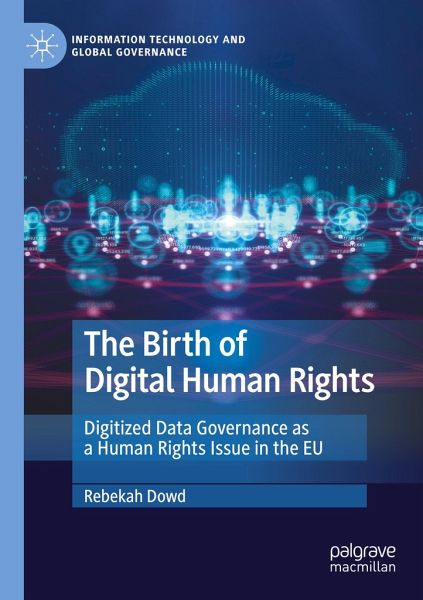
The Birth of Digital Human Rights
Digitized Data Governance as a Human Rights Issue in the EU
Versandkostenfrei!
Versandfertig in 6-10 Tagen
98,99 €
inkl. MwSt.
Weitere Ausgaben:

PAYBACK Punkte
49 °P sammeln!
This book considers contested responsibilities between the public and private sectors over the use of online data, detailing exactly how digital human rights evolved in specific European states and gradually became a part of the European Union framework of legal protections. The author uniquely examines why and how European lawmakers linked digital data protection to fundamental human rights, something heretofore not explained in other works on general data governance and data privacy. In particular, this work examines the utilization of national and European Union institutional arrangements a...
This book considers contested responsibilities between the public and private sectors over the use of online data, detailing exactly how digital human rights evolved in specific European states and gradually became a part of the European Union framework of legal protections. The author uniquely examines why and how European lawmakers linked digital data protection to fundamental human rights, something heretofore not explained in other works on general data governance and data privacy. In particular, this work examines the utilization of national and European Union institutional arrangements as a location for activism by legal and academic consultants and by first-mover states who legislated digital human rights beginning in the 1970s. By tracing the way that EU Member States and non-state actors utilized the structure of EU bodies to create the new norm of digital human rights, readers will learn about the process of expanding the scope of human rights protections within multipledimensions of European political space. The project will be informative to scholar, student, and layperson, as it examines a new and evolving area of technology governance - the human rights of digital data use by the public and private sectors.














